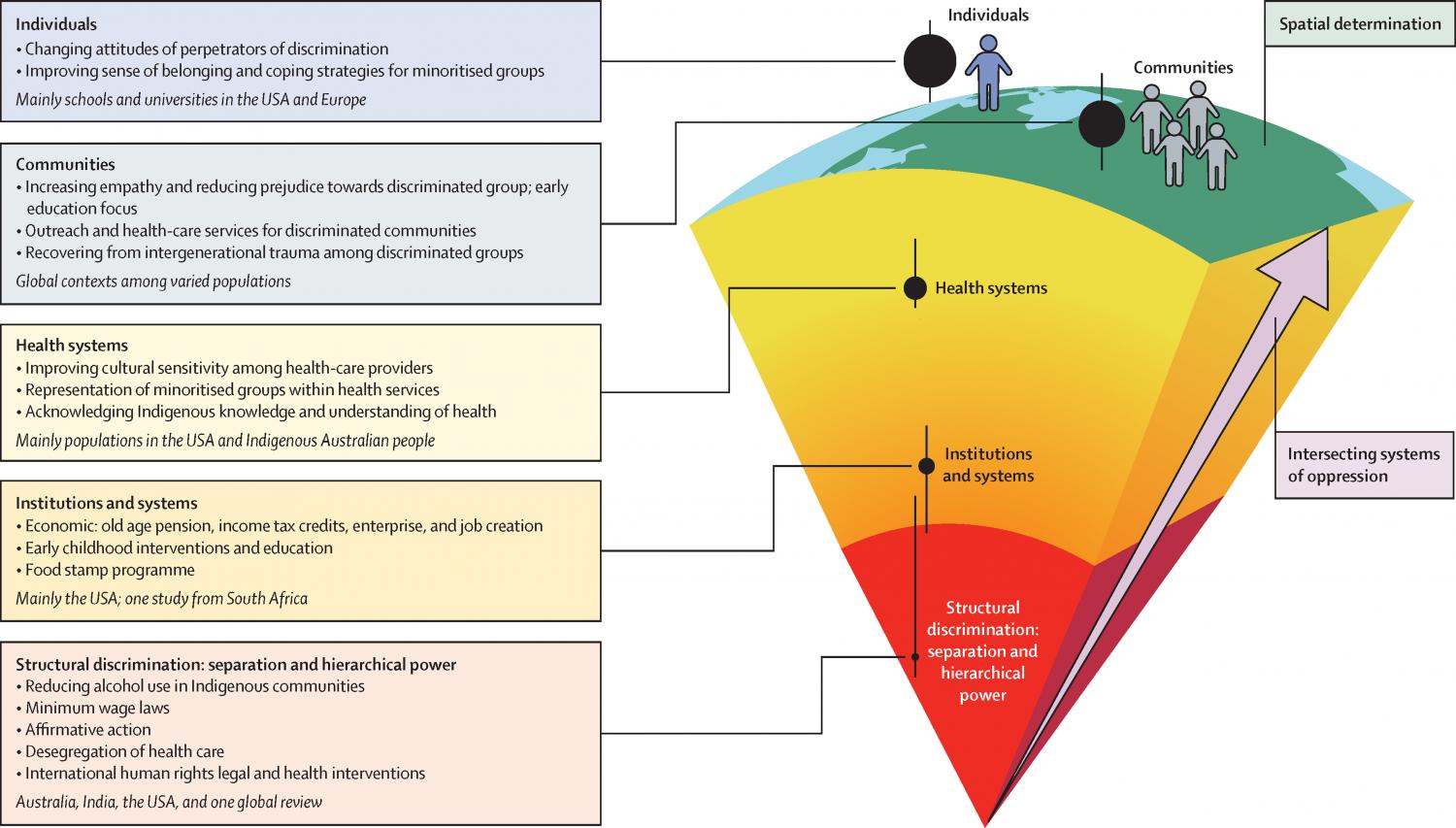
Racism, xenophobia, and discrimination are key determinants of health and equity and must be addressed for improved health outcomes. We conclude that far broader, deeper, transformative action is needed compared with current measures to tackle adverse effects of racism on health. To challenge the structural drivers of racism and xenophobia, anti-racist action and other wider measures that target determinants should implement an intersectional approach to effectively address the causes and consequences of racism within a population. Structurally, legal instruments and human rights law provide a robust framework to challenge the pervasive drivers of disadvantage linked to caste, ethnicity, Indigeneity, migratory status, race, religion, and skin colour. Actions need to consider the historical, economic, and political contexts in which the effects of racism, xenophobia, and discrimination affect health. We propose several specific actions: a commission that explores how we action the approaches laid out in this paper; building a conversation and a series of events with international multilateral agency stakeholders to raise the issue and profile of racism, xenophobia, and discrimination within health; and using our multiple platforms to build coalitions, expand knowledge, highlight inequities, and advocate for change across the world.
